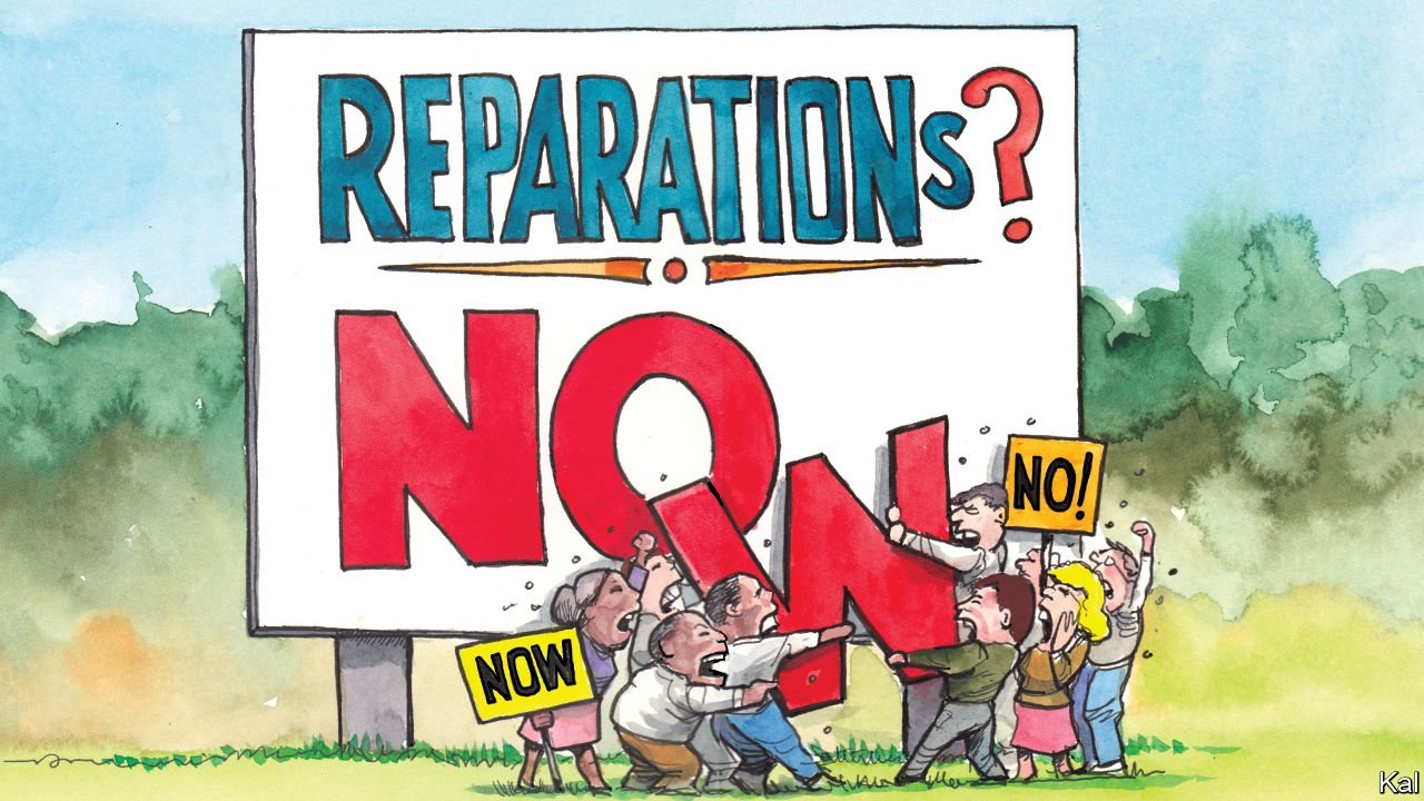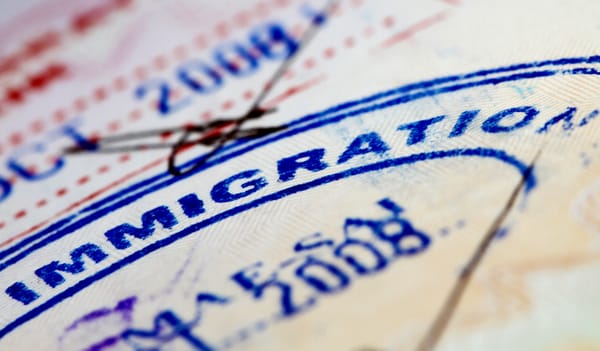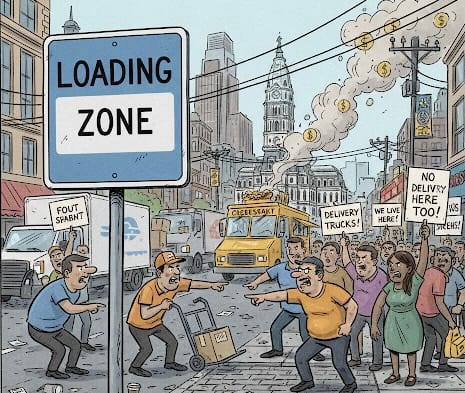Let’s discuss reparations
California may have created a template for a conversation about reparations, which we are bound to have. Repeat — may have.
It is part of the “racial reckoning” ignited by the murder of ex-con George Floyd we are now experiencing.

The idea of somehow “making whole” African-Americans who experienced loss because of America’s racist past is not a new idea. It’s been around for a very long time and helped create fame for Ta-Nehisi Coates with his June 2014 essay in The Atlantic magazine.
The problem with his analysis, I wrote at the time, was that Coates made no “ask.” He laid out the history of slavery, and Jim Crow that followed that, and past racial policies such as redlining neighborhoods and denying some Black veterans the benefits they should have had under the G.I. Bill.
He did not say who should receive how much from whom, which are really important questions.
At the time, I wrote we can have a conversation about reparations, but a conversation consists of an exchange of ideas, not one side lecturing the other.
I can’t discuss reparations without a price tag, and not under a formula by which my minimum-wage daughter would have to pay reparations to Oprah Winfrey, or my son on disability payments would have to write a check to LeBron James.
In a mind-numbing stretch, Coates prefaced his academic analysis with a quote from Deuteronomy, ordering Hebrew slave holders to release (especially Hebrew) slaves after six years and to compensate them.
First, I doubt that Coates is Hebrew. (Sorry for the Levi-ty.)

Second, the command is for the master to compensate the slave. It does not say the great-great-great-grandchild of the owner, who has never owned a slave, must compensate the great-great-great-grandchild of the slave, who has never been enslaved.
The idea of reparations is fraught with complicated details, and California has tried to address them, but is lacking in a way I will explain.
In a related development, 11 U.S. cities have committed themselves to a small-basis reparations scheme, with details to follow. Georgetown University and the Princeton Theological Seminary are offering free tuition to descendants of slaves sold by those institutions. The institutions that directly benefited from slavery are making amends. That seems fair and right.
”Apologies” for slavery and the following discrimination have been made here and there, but the sincerity of apologies could be measured by the amount of restitution. There rarely was any, yet something is due.
Some Native American tribes were given some remedies — including the financial benefit to operate casinos — for past injustice, and Japanese who were wrongly interned during World War II received an apology and a small cash stipend of $20,000. That went only to those incarcerated — not their descendants.
So there are two precedents — payment for illegal treatment, but limited to actual victims. The latter would not apply to African Americans.
The whole California report is 490 pages. I have read the 24-page executive summary.
But before I get to that, there is a point I want to make.
My family — which arrived here shortly before World War I — never had anything to do with slavery and to my knowledge no one related to me ever took advantage of a Black person.
But my country did, and I am a member of that community. Not to be held guilty. I don’t believe in collective guilt, but I can be part of an effort to make whole those who had suffered.
The California task force, which began meeting in June 2021, voted in March to limit reparations to the descendants of African Americans living in the U.S. in the 19th century, overruling advocates who wanted to expand compensation to all Black people in the U.S., AP reported.
“All” Black people would include people like Barack Obama, whose father was an immigrant from Kenya, arriving in the mid 20th Century. Obama has no ties to slavery whatsoever (while Michelle Obama might). But Obama might qualify as someone who was the victim of racist housing, economic, or environmental injustice. As I said, it is complicated and fraught with details.
Slavery itself is a topic to discuss, because it was not an invention of American white supremacy, it has been around since Biblical times, and practiced by Blacks against themselves. White Britons brought it to North America. White Americans eventually abolished it.
“Four hundred years of discrimination has resulted in an enormous and persistent wealth gap between Black and white Americans,” said the report by the California Task Force to Study and Develop Reparation Proposals for African Americans…”
Here’s some great context provided by AP:
“California is home to the fifth-largest Black population in the U.S., after Texas, Florida, Georgia and New York, the report said. An estimated 2.8 million Black people live in California, although it is unclear how many are eligible for direct compensation.
“African Americans make up less than 6% of California’s population yet they are overrepresented in jails, youth detention centers and prisons. About 28% of people imprisoned in California are Black and in 2019, 36% of minors ordered into state juvenile detention facilities were African Americans, according to the report.
“Black Californians earn less and and are more likely to be poor than white residents. In 2018, Black residents earned on average just under $54,000 compared to $87,000 for white Californians.”
Those few paragraphs give a remarkably clear picture of Black California. Numbers, facts, stats.
The task force opens with a long, and detailed history of slavery and inequality in the U.S., and in California.
It then moves into recommendations. Here is a selection of proposals, some of them reading like a social worker’s bucket list, having nothing to do with slavery:
- Making education, substance use and mental treatment the first priorities of prisons
- No prisoner should be forced to work
- Incarcerated people should be allowed to vote
- Create expressions to acknowledge “state-sanctioned white supremacy terror,” including memorials and a truth and reconciliation commission
- Furnish to Black Californians the estimated value of Black-owned businesses and property “stolen or destroyed through acts of racial terror.” (I am not sure if this includes damage by riots in Black communities.)
- Apologies for voter disenfranchisement.
- Better voter registration
- Allow felons to serve on juries
- Compensate people removed from their homes by urban renewal
- Prevent banking and mortgage discrimination
- Repeal “crime-free housing policies”
- State subsidized mortgages with low interest rates for Black people
- Development incentives for businesses that provide healthy food
- Eliminate racial bias in standardized testing
- Free tuition for California colleges and universities
- Reduce arbitrary segregation within California public schools
- Provide scholarship for all Black high schools graduates. (To attend the free colleges?)
- Adopt a K-12 Black Studies curriculum that introduces students to concepts of race and racial identity
- Fund the statewide planting of trees to create shade equity
- Reduce the density of “food swamps” (I.e., high-densities of fast-food restaurants) in Black neighborhoods.
- Compensate families who were denied familial inheritances by way of racist anti-miscegenation laws
- More welfare for Black people
- Eliminate past-due child support owed to the government for non-custodial parents
- Eliminate the collection of child support as a mean to reimburse the state for current or past government assistance
- Require that all jail visitation policies be culturally competent, trauma-informed, and non-threatening for family members
- Compensate individuals who have been deprived of righteous profits from their artistic, creative, intellectual or athletic work
- Raise the minimum wage
- Address disparities in transportation that limit access to jobs.
That just scratches the surface.
Fair-minded people will agree something is owed some African-Americans, the ones who can prove continuing injury from long-ago slavery. But what?
Despite the hundreds of pages California devoted to the topic, the same thing is missing here as from Coates’ work:
The overall price tag, and who gets what?
It’s great to kick the tires and take a test drive, but until a price tag is put on the vehicle, we can’t have that conversation about reparations.



